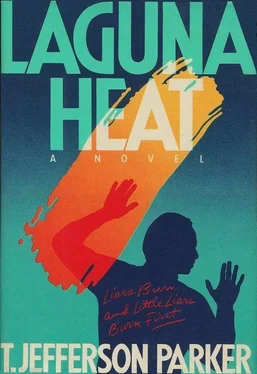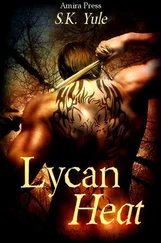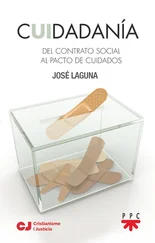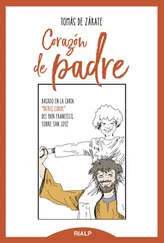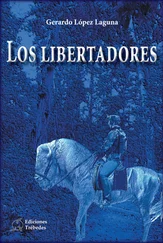“Stress that the killings of Algernon and Creeley may be connected, or may not be. We don’t want to arouse any more fears than we have to. Don’t mention the threats, the eyelids, or the voice on the answering machine because we need something to use on a suspect. Stress again that the force has redoubled its efforts, and that a task force is working around the clock to bring a suspect under arrest. Remain calm, polite, and assured at all times. Pass out the Identikit sketches in case any of the local papers haven’t seen them. And insist on makeup for my forehead because I’m sure to sweat under the lights.”
Hannover nodded with approval throughout the litany, then smiled and leaned back again in his chair.
“You’ve got a mind like a steel trap, young man,” he said finally. “And remember you’re representing the city of Laguna Beach, home of the Festival of Arts. The conference is set for four, so you’ve got about five minutes to get handsome. Just like your father, Shephard, you’re going to be a TV star.”
The conference room was already steaming in the raw glare of the television lights when Shephard walked in. He sat down at the end of a long table, declined makeup, and broke into a sweat. Danny Pedroza sat down next to him.
“Thought I left you in L.A.,” Shephard said.
“I thought I’d left you there, too.” Pedroza looked at Shephard’s head. “Somebody hit you with a wine bottle?”
“Just a hangover.”
“I’ve been trying to get a job in Orange County for three years. You know, sun and waves and pretty girls on every corner. None of this kind of crap.”
Shephard studied Pedroza’s smooth, youthful face, the short black hair, the pearly grin. “Me, too. But people keep killing each other and reporters keep asking questions. No end to it, I guess.”
One of the young cadettes walked into the conference room, drawing stares and a cumbersome silence as she came to Shephard and plopped a stack of Identikit sketches down on the table. When she left, Pedroza leaned closer. “What’s this about the eyelids being snipped?” he asked in a whisper.
“News to me,” Shephard said out loud, looking straight ahead. Where do they find out this stuff, he wondered.
“You denying it?”
“I never said it.”
“Is it true?”
Shephard considered his response as Hannover’s parameters dissolved in his mind. “What if it were?”
“Then I’d like us to print it.”
“The chief wouldn’t, Danny. We need something for the suspects to choke on.”
“I can respect that.”
“Would you?”
“I respected that wine bottle.” Pedroza paused, then leaned closer again. “Both off?”
The NBC director was motioning for Shephard to stand, snapping his fingers and checking his light meter. Shephard nodded to Pedroza, returned the glare of the lights as best he could, then stood.
Looking out at the conference room, he saw only the blizzard of lights, hot and relentless, and heard the clicking of tape recorders, the shuffle of pens and pads. Shephard began his briefing, talking to the faceless crowd before him.
“Monday at six A.M. a routine Laguna police patrol discovered the body of Tim Algernon outside his home on Laguna Canyon Road,” he heard himself drone. Good, he thought, maybe they’ll all fall asleep. “The Orange County Coroner’s office reported later that day that Mr. Algernon had expired from severe hemorrhaging in the skull caused by trauma. The trauma was caused by a rock.” Shephard continued to stare into the camera, careful not to wipe his face with his hand, as he was tempted. “The body was then doused with common turpentine and set on fire. Three days later, on Thursday at approximately three P.M., the body of Mrs. Hope Creeley, age sixty-three, was discovered in her Laguna Beach home. Mrs. Creeley was pronounced dead by reason of severe burns early the next day by the coroner. Certain similarities that have occurred in the two cases open up the possibility that the murders may have been the act of one man.” Hannover’s absurd “parameter” rang somewhere in the back of Shephard’s echoing brain. “But it is not our opinion at this time that the murders are definitely connected.” He heard a low groan issue from the glare to his right, followed by a grumble from the other side of the table.
“Investigation has led us to believe that the suspect is a white male, age sixty, medium height and slight build. Eyes are blue and hair is gray, worn longish, and a beard. He may be driving a 1964 Cadillac Coupe de Ville, convertible, red. The plates are one-five-six DSN. At this point we have not established a motive. Questions?”
The voices blasted at him chaotically, like leaves blown by wind. They tangled all at once, repeated, dissipated to a few, then singled to one that issued from just behind the camera.
“Do you believe the same person is responsible for both murders?”
“We’re not sure. There is a possibility.”
The same voice: “How good is that possibility?”
“There are indications for and against. Speculation would be premature.”
Then a woman’s voice, harsh and hurried: “Then it’s possible that there are two maniacs running around this town burning people to death?”
“We haven’t ruled that out,” Shephard said, nearly choking on the idea.
A new voice: “Was Mrs. Creeley sexually assaulted?”
“No.”
“Was Mr. Algernon?” A grumble from the reporters.
“No.”
The first voice: “You say no motive has been established. Can you tell us what motives have been ruled out?”
“Robbery. Substantial amounts of property were left at both scenes. No property that we know of has been taken.”
The woman again: “Then in the absence of apparent motive, we may be talking about thrill killing?”
“That is a possibility.”
A young man’s voice: “Mr. Shephard, do you have a witness to either murder?”
“No.”
“Where did you get the description of the suspect and his car?”
“I can’t reveal that at this time.” Shephard felt a fat bead of sweat travel down his forehead toward his nose. Should have taken the makeup, he thought. The lights in front of him burned into his eyes. No wonder they use bright lights for interrogation.
“Is the car stolen?” Good question, Shephard thought.
“We believe so.” Then why no record in Sacramento?
“Was the rock that killed Algernon thrown or driven into his head manually?”
“Driven manually,” Shephard answered.
Then the first voice: “Did Mr. Algernon and Mrs. Creeley know each other?”
“Yes.” There was another rush of questions, which finally filtered down to one. His eyes burned.
“Do you believe they were involved in any illegal activity?”
“No, we do not.”
The harsh woman’s voice again: “Romantically? Were they involved with each other romantically?”
“No. They were friends at one time.”
“What time was that?”
“Still friends, I mean. Friends for a long time.”
“Do you think that this may be the work of more than one man?”
“We believe the suspect acted alone. It is possible that he had help.”
The young voice: “What kind of help?”
“We have no evidence; it is simply not ruled out at this time.”
“Do you think it is significant that both victims lived alone?”
“It is harder to kill two people than it is to kill one, if that’s what you mean.”
“Not exactly.”
Then a woman’s voice, harsh and fast, from the back of the room: “Detective Shephard, isn’t it true that you resigned from the Los Angeles Police Department after the fatal shooting of Morris Mumford last year?”
Shephard stared lamely in the direction of her voice. “Yes, that is true.”
Читать дальше
